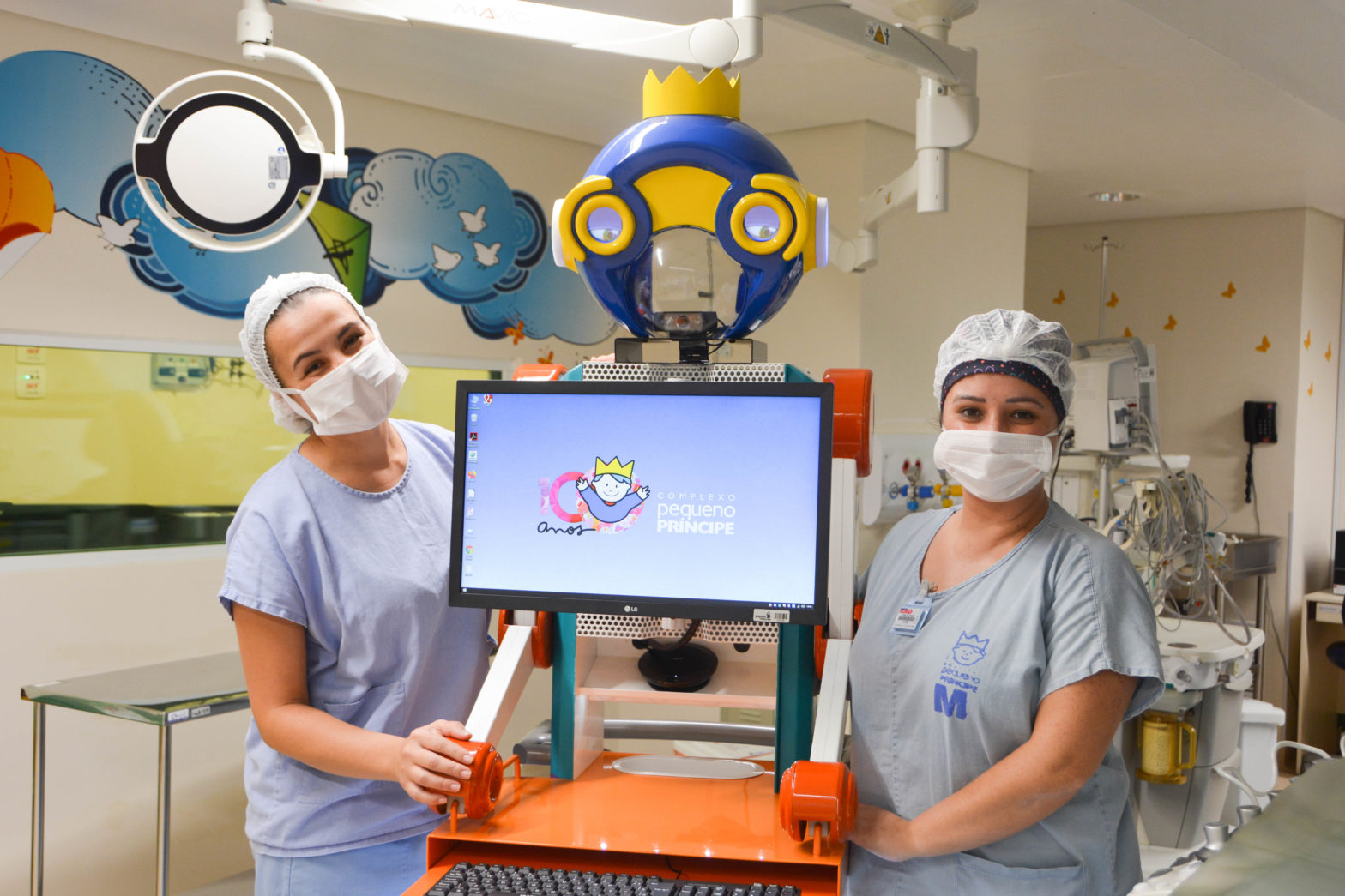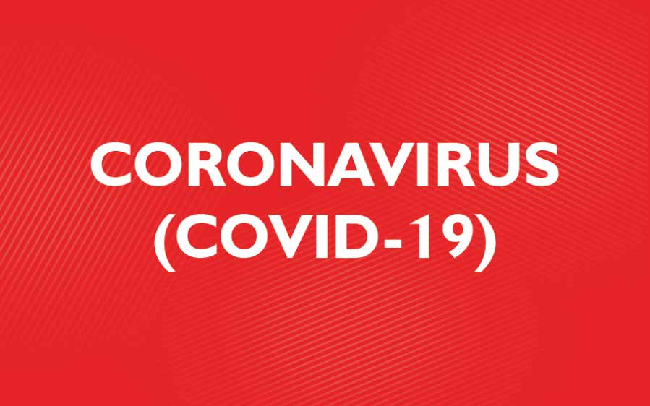Pequeno Príncipe prepares to resume essential elective surgeries
Specific protocols and flows for surgical patients ensure safety while resuming procedures
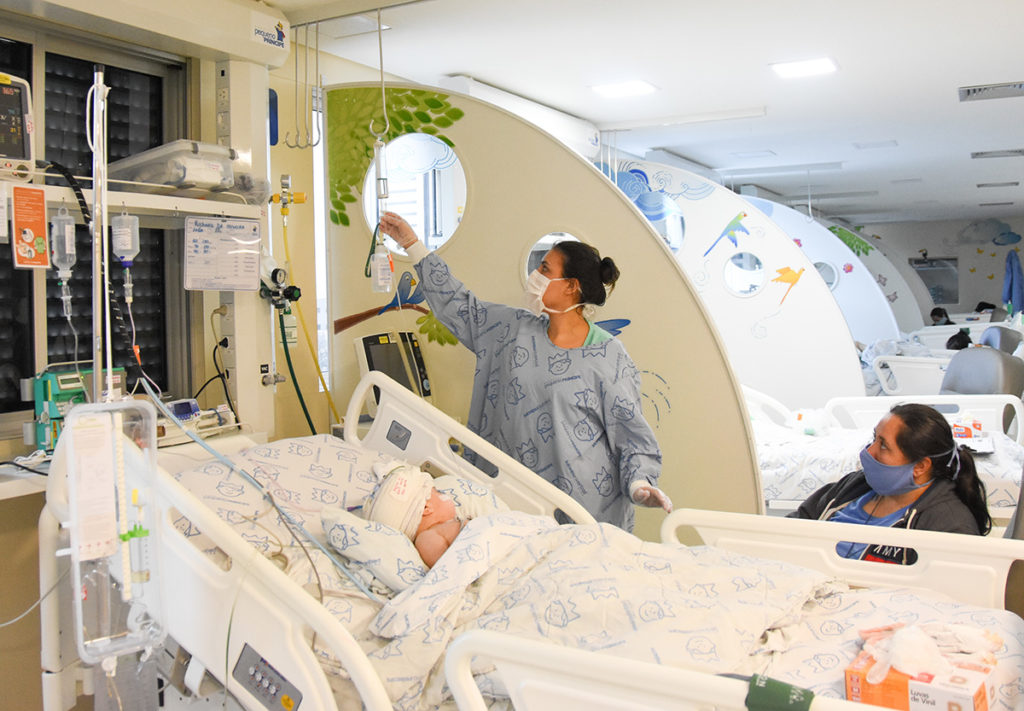
Richard Caetano arrived at Pequeno Príncipe Hospital in early June. The family just had an MRI scan that identified a large tumor in the boy’s brain that needed to be removed urgently. The next day, Richard, just 1 and a half year old, underwent surgery that lasted more than 10 hours. “We removed part of the tumor in the first surgery and, seven days later, we performed a second, likewise, to complete the removal,” says neurosurgeon Carlos Matozzo.
Little Isabella was born with a malformation in her heart. A catheterization performed in March indicated the need for corrective surgery, before she completed six months of life. “Right after we did the exam, elective surgeries were suspended because of the pandemic. I was very afraid of not having time to do the procedure at the correct age,” says her mother, Graziela Perretto Rodrigues. The procedure was carried out on June 1, the month in which Isabella completed five months. Despite the coronavirus pandemic (COVID-19), the mother says she felt safe to go to the Hospital. “We permanently needed to change our masks and use gel alcohol. It is not a 100% comfortable situation, but I see that everyone here is taking great care, much more than outside the Hospital,” she reports. “My biggest fear was not being able to have the surgery in time and compromising her development,” she adds.
Like Richard, other patients underwent emergency surgery in these months. The electives, like the one that Isabella needed, were postponed because of the pandemic. From January to April 2020, the Hospital stopped performing more than 2,000 surgeries. Now, the Pequeno Príncipe is resuming the essential electives, with all the security that the moment demands.
In order to do so, specific protocols and flows were created, which completely separate the patient with suspicion or confirmation of COVID-19 from the others and that previously monitor the candidate for surgery, ensuring that he is not infected with the coronavirus on the day of the procedure.
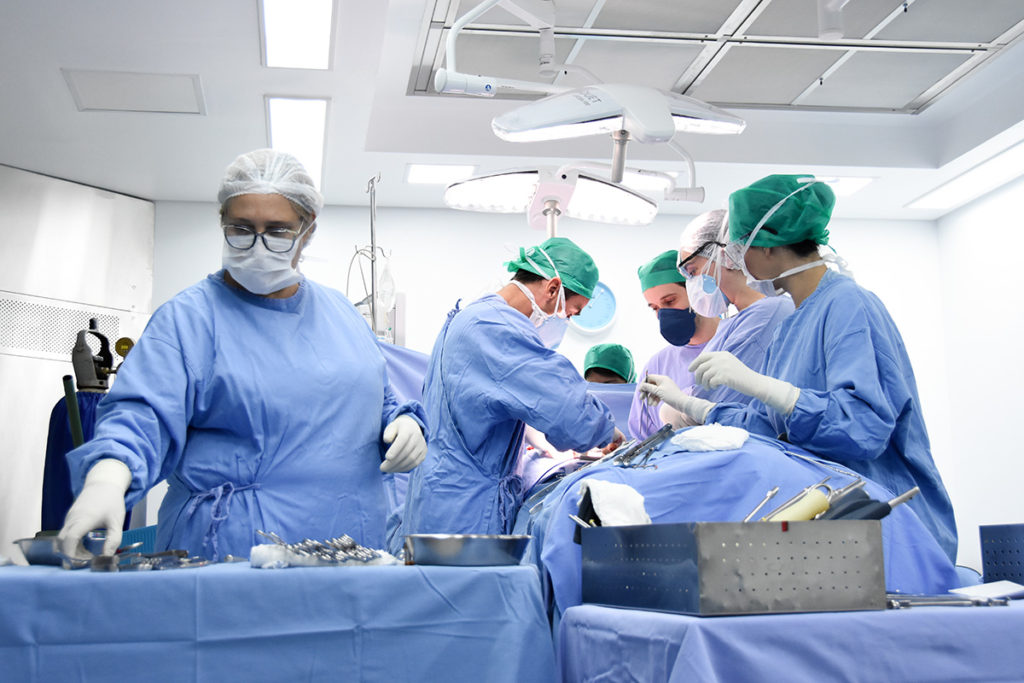
Essential electives
“The resumption of surgery will start with the essential electives, which are all surgeries that, when postponed, compromises the patient’s clinical condition due to the progression of the underlying disease and the possible complications that may result from this progress,” explains the clinical director from the Hospital, Donizetti Dimer Giamberardino Filho.
The safety protocol developed creates three clinical barriers to ensure that the surgical patient is not contaminated with the coronavirus (SARS-CoV-2) on the day of surgery. The first is an extensive investigation, which will be carried by the surgeon, the anesthetist and at the time of hospital admission.
The second barrier is the isolation of the patient and his/her relative in the 14 days preceding the surgery. The patient’s family who has their surgery scheduled will sign a term of commitment, ensuring to fulfill the isolation. During the isolation period, they will receive all the guidelines regarding documentation needed. There will also be a teleconsultation with the anesthetist.
The third barrier will occur 48 hours before surgery and provides that, in cases of suspected contagion, the patient will be submitted to the RT-PCR test, for investigation.
Upon arriving at the Hospital, the patient and his companion will have their own area to identify themselves and will be immediately taken to the room, using an exclusive elevator. Only after arriving at the room the admission documents will be completed. In addition, there will be a reassessment made by the anesthesiologist, this time in person. This reassessment will also be carried in the room, to prevent the patient from circulating in the Hospital. The journey to the Surgical Center will be done by a route that does not coincide with the transit of patients with respiratory symptoms.
The surgical patient – as well as the patients with suspected COVID-19, companions and collaborators of the Hospital – wear a mask for any and all circulation within the institution. For children under 3 years old, a tent is used.
Patients with respiratory symptoms
The boys and girls with respiratory symptoms under investigation or confirmed with COVID-19 use specific elevators inside the Hospital, which are not shared with other patients. They are also admitted in a fully reserved wing, on the 4th floor and, when they need an ICU, they are directed to an exclusive environment for these cases. In the Surgical Center, a room was also isolated for restricted use by these patients.
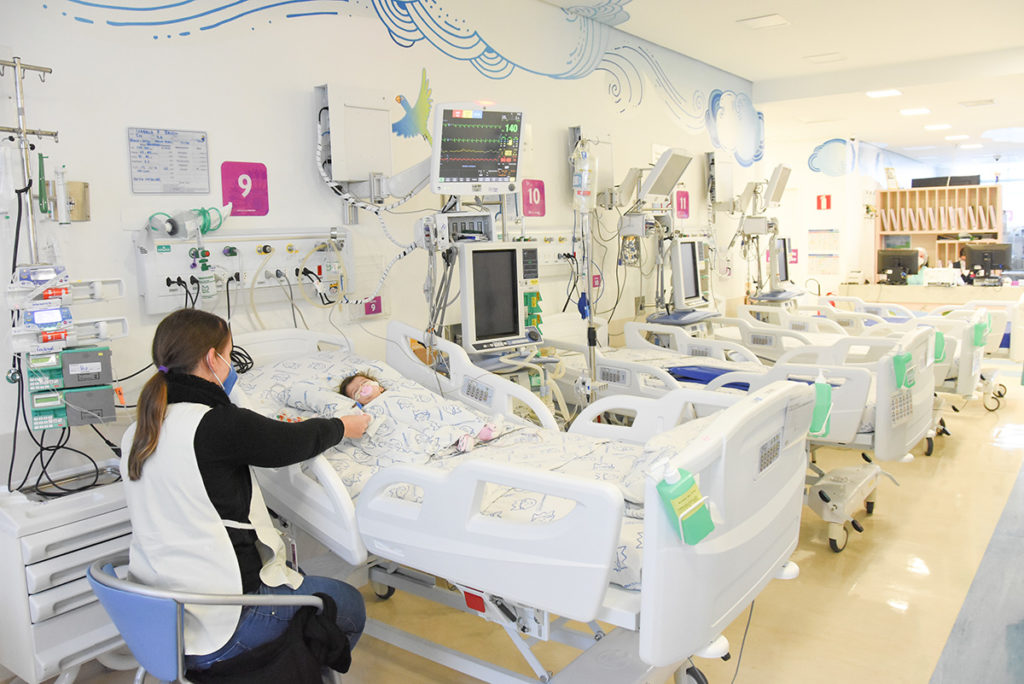
Financial sustainability
In addition to preserving the health of children and adolescents who need surgery to maintain or recover their quality of life, the resumption of elective surgery is an important movement for the financial health of Pequeno Príncipe Hospital.
“We are a predominantly surgical hospital and more than two thirds of our hospitalizations are surgical. In these months that we had the surgeries suspended, we had deepened our financial deficit. In the month of May, for example, our revenue related to health insurance plans fell 60% compared to last year. We are making this recovery movement with all the security necessary for our patients and with responsibility to keep the institution financially viable,” emphasizes the corporate director of the Pequeno Príncipe Complex, José Álvaro da Silva Carneiro.
More
Pequeno Príncipe innovates in remote assessment to maintain ONA (National Accreditation Organization) certification
Due to the pandemic, telepresence robots were used to take the evaluators on a tour through the Hospital’s main health areas
COVID-19 Report
Until 10 a.m. on June 19, the Pequeno Príncipe Hospital treated 178 suspected cases of the disease, of which 14 were confirmed

